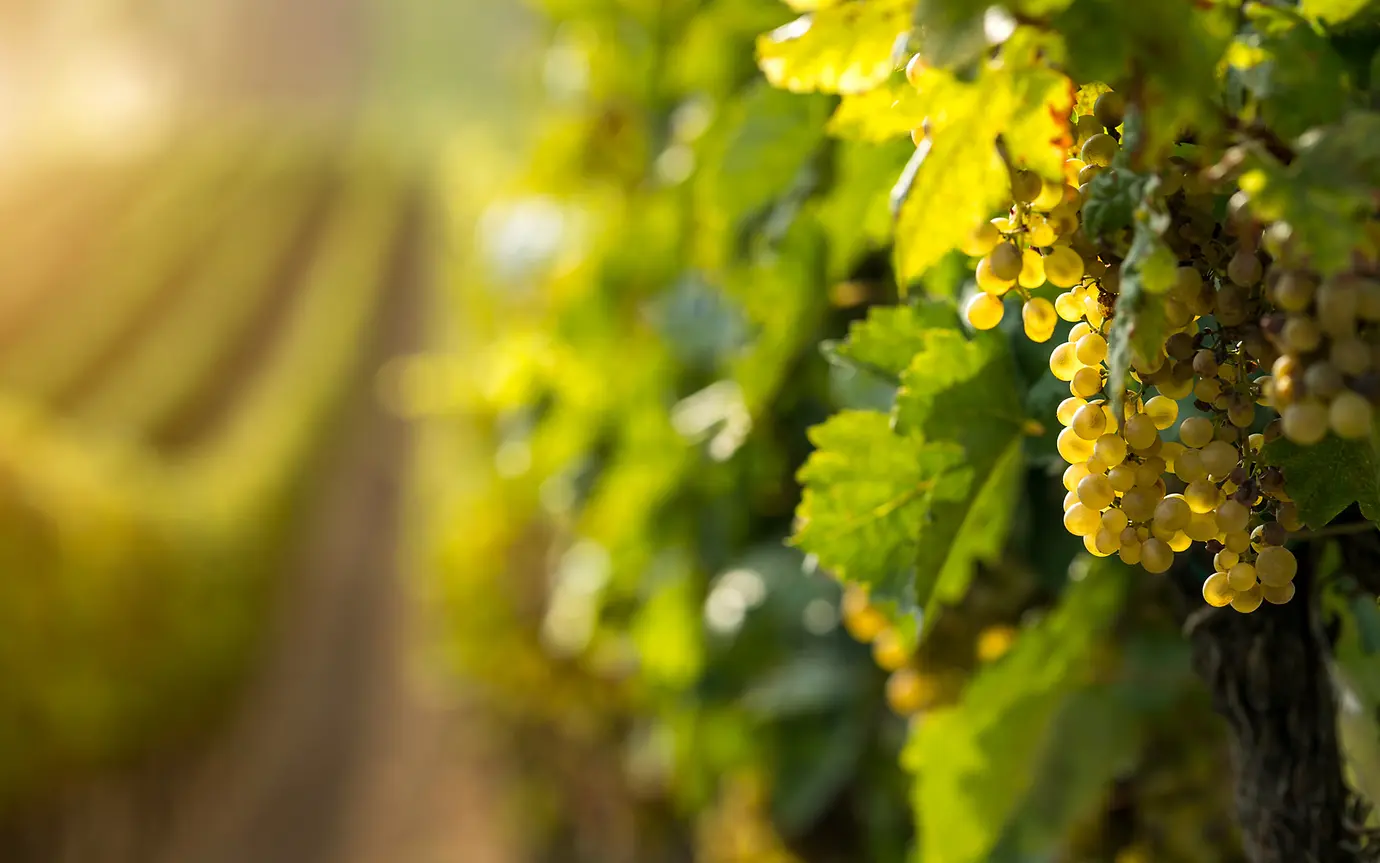Organic wines are becoming increasingly popular thanks to their greater vibrancy and stronger character and soul, says the Head of the Princely Wine Cellars of the Prince of Liechstenstein, Stefan Tscheppe.

We spoke to Stefan Tscheppe to hear exactly why organic wine is set to be the glass of choice.
"No," is Tscheppe’s short answer. "Organic wine – and even natural wine – is not necessarily the better wine," he says. However, they do tend to have one characteristic in common: "Organic wines that are produced on a small scale are often livelier than wines that are produced on an industrial level. They have more character, more nuances." After reflecting for a moment, Tscheppe adds, "These wines continue to develop even after they reach a certain age. That’s their soul."
"For me, a vineyard is only valuable if it produces distinctive wines."
Organically certified wine must meet international standards for how the plants are protected and how the wine is processed. However, the label doesn’t provide any information about the quality or taste of the wine, says Stefan Tscheppe. These factors are determined by the climate, the soil, the grape varieties used and the vinification.
Stefan Tscheppe, Head of the Princely Winery: "Wines produced under organic aspects tend to show more liveliness."
This means that growing grapes organically is not a process whereby as much work as possible is left to nature. It would be a mistake to think that winemakers don’t need to do anything at all when making organic wines, he says, "If I put wine in a barrel and let it sit for two years, it might taste ‘just like Mother Nature wanted it to,’ but that’s not necessarily a pleasant taste." Tscheppe laughs.
Monitoring the fermentation process, temperature and air supply is just as important as the decision of whether the wine should go into a barrel or a steel tank. "Winemaking is a bit like cooking, you have to train the wine so that you capture the taste of the terroir and find a balance between acidity, freshness, and fruitiness and saltiness," says Tscheppe.
Every once in a while, Tscheppe looks through the Princely Wine Cellars’ old documents and records. "In the 17th century, vintners focused on the size of the harvest and the sugar content, and less on the taste of the wine." But even back then, they tried to protect their vines from diseases with the means that were available to them. "They couldn’t rely much on chemistry, so they had to have a strong affinity for nature and understand it well."
The Princely Winery includes the domain in Wilfersdorf, Austria, and in Vaduz, Principality of Liechtenstein.
After World War II, chemical fertilisers, which are much more efficient, started to become widely used in vineyards. The use of traditional pesticides was commonplace in viticulture until the 1970s and 1980s. This changed as concern for the environment began to increase, especially in German-speaking countries. Consumers slowly started to change their attitude to food in general and especially to wine.
The first organic wines were produced in the 1980s; however, they had a reputation for having an inferior flavour compared to conventionally produced wines. "None of the top producers in any of the wine-growing regions, so California, France or Italy, were producing organic wine back then. Most didn’t start making organic wines until after 2000," Tscheppe recalls. "And when they took that step, a large number of wine drinkers realized it was possible to produce excellent organic wines."
Tscheppe is convinced that wine is often a trend-setter. He explains that consumers today want to know how a wine is made. "Maybe even more so than for other foods and beverages," he says. "And that means that wineries can no longer get around producing organically." Although an organic label alone "doesn’t sell like it used to," people now expect wine to be produced in a way that is environmentally friendly and assume that this is the case.
The Herawingert is the most traditional and important vineyard in the Principality of Liechtenstein.
Terroir is a word that comes up often in the conversation. According to Tscheppe, this is ideally expressed in a wine’s freshness, balance, structure and distinctiveness. "For me, a vineyard is only good if it produces distinctive wines. If the wine tastes the same as the wine produced 300 kilometers away from there, what’s the point?"
Tscheppe starts to talk enthusiastically about the distinct taste of the Pinots, Chardonnays and Rieslings produced by the Princely Wine Cellars. "The Pinot has a fresh, delicate lightness to it, but finishes with a hint of cooked wild raspberry; that’s thanks to a southern wind called foehn that blows through the Rhine Valley. You won’t get that anywhere else."
This article original featured in MAG/NET.
Read more from The Brief.
This communication is provided for information purposes only. The information presented herein provides a general update on market conditions and is not intended and should not be construed as an offer, invitation, solicitation or recommendation to buy or sell any specific investment or participate in any investment (or other) strategy. The subject of the communication is not a regulated investment. Past performance is not an indication of future performance and the value of investments and the income derived from them may fluctuate and you may not receive back the amount you originally invest. Although this document has been prepared on the basis of information we believe to be reliable, LGT Wealth Management UK LLP gives no representation or warranty in relation to the accuracy or completeness of the information presented herein. The information presented herein does not provide sufficient information on which to make an informed investment decision. No liability is accepted whatsoever by LGT Wealth Management UK LLP, employees and associated companies for any direct or consequential loss arising from this document.
LGT Wealth Management UK LLP is authorised and regulated by the Financial Conduct Authority in the United Kingdom.